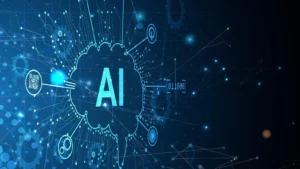The rapid advancement of digital intelligence has led to a new age of automation that is transforming our society in unprecedented ways. With artificial intelligence (AI) and machine learning algorithms becoming increasingly sophisticated, automation is revolutionizing industries and redefining the way we work, live, and interact with technology. In this article, we will explore how the age of automation is shaping our society and what it means for the future.
- The Rise of Robots
Robots are no longer confined to the realm of science fiction. In recent years, there has been a surge in the development and use of robots in various industries, from manufacturing and construction to healthcare and retail. Robots are increasingly being used to perform repetitive or dangerous tasks, freeing up human workers to focus on more creative and complex work. This shift towards automation has the potential to increase efficiency, reduce costs, and improve safety.
- AI and Machine Learning
The development of AI and machine learning algorithms has revolutionized the way we interact with technology. These algorithms can learn from data, identify patterns, and make predictions, enabling them to perform tasks that were once the sole domain of human intelligence. From chatbots and virtual assistants to self-driving cars and predictive analytics, AI is transforming the way we live and work.
- The Future of Work
Automation is changing the nature of work, with some jobs becoming obsolete while new ones emerge. This shift towards automation is expected to continue, with some estimates predicting that up to 47% of jobs could be automated within the next two decades. While automation has the potential to increase efficiency and reduce costs, it also raises concerns about job displacement and income inequality. As such, it’s important for policymakers, businesses, and individuals to consider the implications of automation and work towards creating a future that is inclusive and equitable.
- Ethical Considerations
As automation becomes more prevalent, there are ethical considerations that need to be addressed. For example, AI algorithms can sometimes perpetuate biases and discrimination, and there are concerns about privacy and data security. Additionally, there is a growing debate around the impact of automation on society, with some arguing that it could lead to a more leisurely and fulfilling lifestyle, while others warn of the potential for increased inequality and social unrest.
- Opportunities for Innovation
While there are challenges associated with the age of automation, there are also opportunities for innovation and progress. Automation has the potential to improve healthcare outcomes, increase sustainability, and enable us to tackle global challenges such as climate change and poverty. By leveraging the power of automation and digital intelligence, we can create a better future for ourselves and future generations.
In conclusion, the age of automation is transforming our society in significant ways, from the rise of robots and the development of AI to the changing nature of work and ethical considerations. As we navigate this new era, it’s important to be mindful of the opportunities and challenges that automation presents and work towards creating a future that is inclusive, equitable, and sustainable. With the right approach, we can harness the power of automation to improve our lives and build a better world.







Be First to Comment